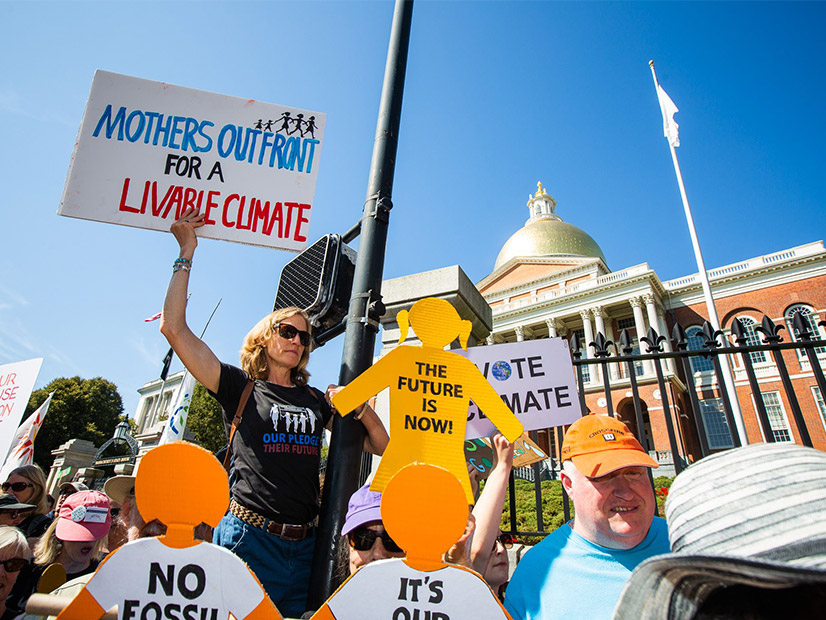New regulatory frameworks for utilities in Massachusetts should include upfront public participation in decisions about energy infrastructure, rather than seeking feedback after the fact, former undersecretary of energy Barbara Kates-Garnick said on Thursday.
Otherwise, she said, the state will spend money on opposition lawsuits instead of the programs that will help Massachusetts reach its urgent climate goals.
“We think we have a public process for engagement of stakeholders, but we don’t,” Kates-Garnick said at a think tank hosted by Attorney General Maura Healey’s office. Communities that are overburdened the most by pollution end up having to oppose projects instead of being part of the development process.
The state’s new climate law, signed in March, is forcing state agencies to rethink regulatory frameworks to decarbonize the economy by 2050.
At the center of those changes is a “renewed understanding of the importance of equity and justice,” said Dale Bryk, director of state and regional policy at the Harvard Environmental and Energy Law Program, at the think tank.
The AG’s office organized a panel of policy experts and practitioners to help regulators think about how they will manage a declining fossil fuel system and reform regulations to make it happen.
But the current regulatory process is “expensive and opaque to those who are the most impacted by it,” Kates-Garnick said.
Without early input from environmental justice communities, the Department of Public Utilities (DPU) runs the risk of leaving those communities behind in the electrification process and putting the cost of maintaining the gas distribution system on their shoulders.
The climate bill mandates emissions reductions for specific sectors, including natural gas. The emissions cap will decrease over time, forcing state agencies to shift away from the fossil fuel and electrify home heating, cooling and cooking.
Public housing should be electrified first, Bryk said, because it will be the hardest building segment to decarbonize.
State agencies don’t need to delve into the details of projects too deeply to garner public feedback, but there should be a process, such as facilitated workshops, to educate people and help them be constructive participants in energy planning. Doing so will avoid litigation and protests down the road “because we got the rules right,” Bryk said. “We have these [hurdles] now because the rules are wrong.”
The workshops should include gas utility workers and labor organizations, said Mike Henchen, principal of Carbon-Free Buildings. Gas utilities are highly unionized, and the DPU will need to understand the implications that decarbonization will have for employment opportunities across the state.
Beyond retraining programs, there is a “huge world of benefits we should have our eye on” when it comes to program funding for decarbonization, Bryk said. The transition is a positive for reasons beyond mitigating climate change, which is important for workers to understand. It will “get gas cooking out of smaller, less well-ventilated housing units,” and lead to appliance upgrades, Bryk said.
The first step for state commissioners, she added, is to see if they can build agreement with utilities, labor organizations, environmental justice communities, the building sector and a broad swath of stakeholders on the principles their plans should meet moving forward.
To engage with stakeholders effectively, state leaders need to meet them where they are, Kates-Garnick said. “Where we hold the conversation is equally important as the conversation we hold.”



